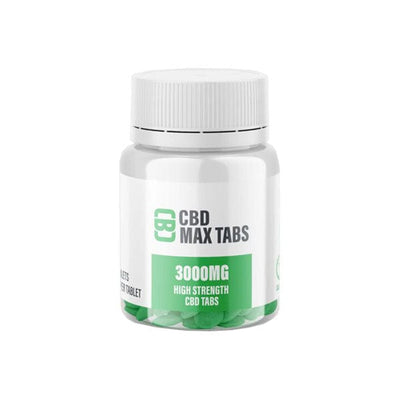CBD and Bone Health: Can It Strengthen Your Skeleton?
Introduction:
Bone health is vital for overall well-being and is influenced by factors such as age, diet, exercise, and genetics. Osteoporosis, a condition characterized by weakened bones and increased fracture risk, affects millions of people worldwide. While traditional treatments for bone health include calcium supplements, vitamin D, and medications, there is growing interest in the potential benefits of cannabidiol (CBD) for maintaining and improving bone health. In this blog post, we will explore the current research on CBD and its implications for bone health.
What is CBD?
Cannabidiol (CBD) is a non-psychoactive compound found in the Cannabis sativa plant, known for its potential therapeutic properties. Unlike delta-9-tetrahydrocannabinol (THC), which causes the "high" commonly associated with marijuana use, CBD does not produce mind-altering effects. Research has shown that CBD may provide relief for various conditions, including chronic pain, inflammation, anxiety, and epilepsy.
CBD and Bone Health: The Research So Far
While research on CBD's effects on bone health is still in its early stages, some studies have shown promising results. The potential benefits of CBD for bone health may be due to its anti-inflammatory properties, as well as its ability to stimulate bone formation and inhibit bone resorption.
- Bone Formation:
Some studies have suggested that CBD may promote the formation of new bone cells, known as osteoblasts. A study published in the Journal of Bone and Mineral Research in 2015 found that CBD enhanced the expression of genes involved in bone formation in a mouse model. These findings indicate that CBD could potentially aid in bone repair and regeneration.
- Bone Resorption Inhibition:
Bone resorption is the process by which osteoclasts break down bone tissue, releasing minerals into the bloodstream. This process is necessary for bone remodeling, but excessive bone resorption can lead to osteoporosis. Some research has indicated that CBD may inhibit bone resorption by suppressing the activity of osteoclasts. By slowing down bone resorption, CBD may help maintain bone density and reduce the risk of fractures.
- Anti-Inflammatory Properties:
Inflammation has been implicated in the development of osteoporosis and other bone-related disorders. CBD's anti-inflammatory properties may help mitigate the effects of inflammation on bone health, potentially reducing the risk of bone loss and fractures.
Current Limitations and Future Research:
Although the existing research on CBD and bone health is promising, it is important to note that many studies have been conducted on animal models or in vitro settings. More large-scale, long-term clinical trials are needed to establish the safety and efficacy of CBD for bone health in humans. Additionally, the optimal dosage, administration method, and potential interactions with other medications need to be thoroughly investigated.
Conclusion:
The current body of research on CBD and bone health suggests potential benefits in promoting bone formation, inhibiting bone resorption, and reducing inflammation. However, more comprehensive and rigorous research is required to confirm these findings and establish the safety and effectiveness of CBD for bone health. If you are considering using CBD for bone health, it is crucial to consult with a healthcare professional to discuss the potential benefits and risks.






Leave a comment